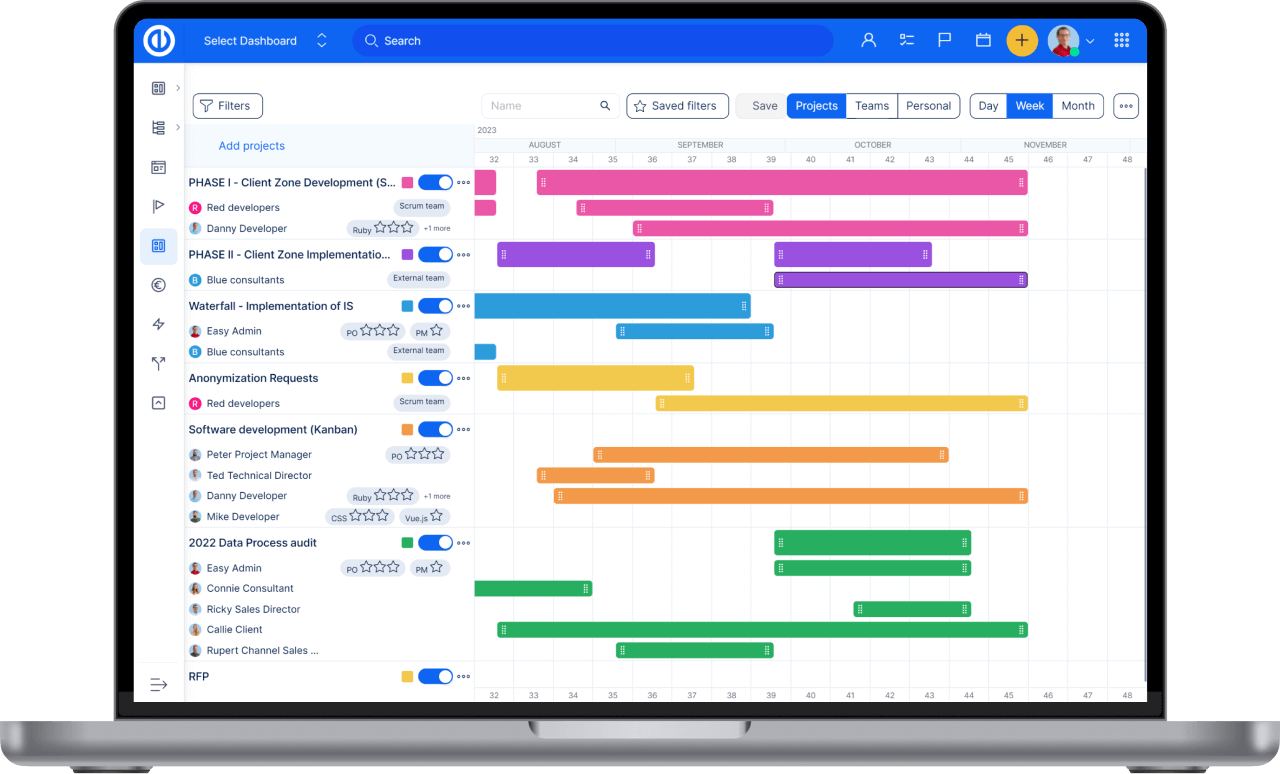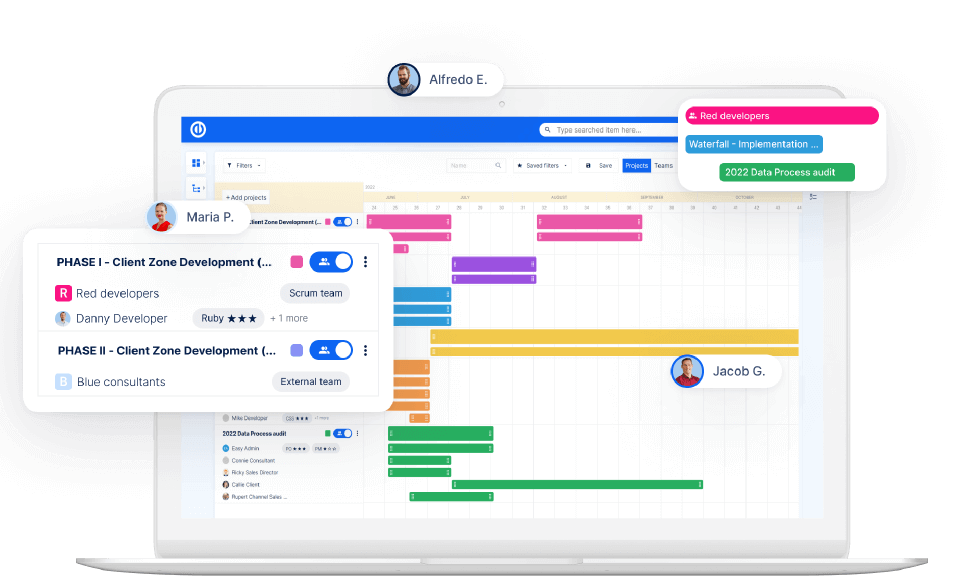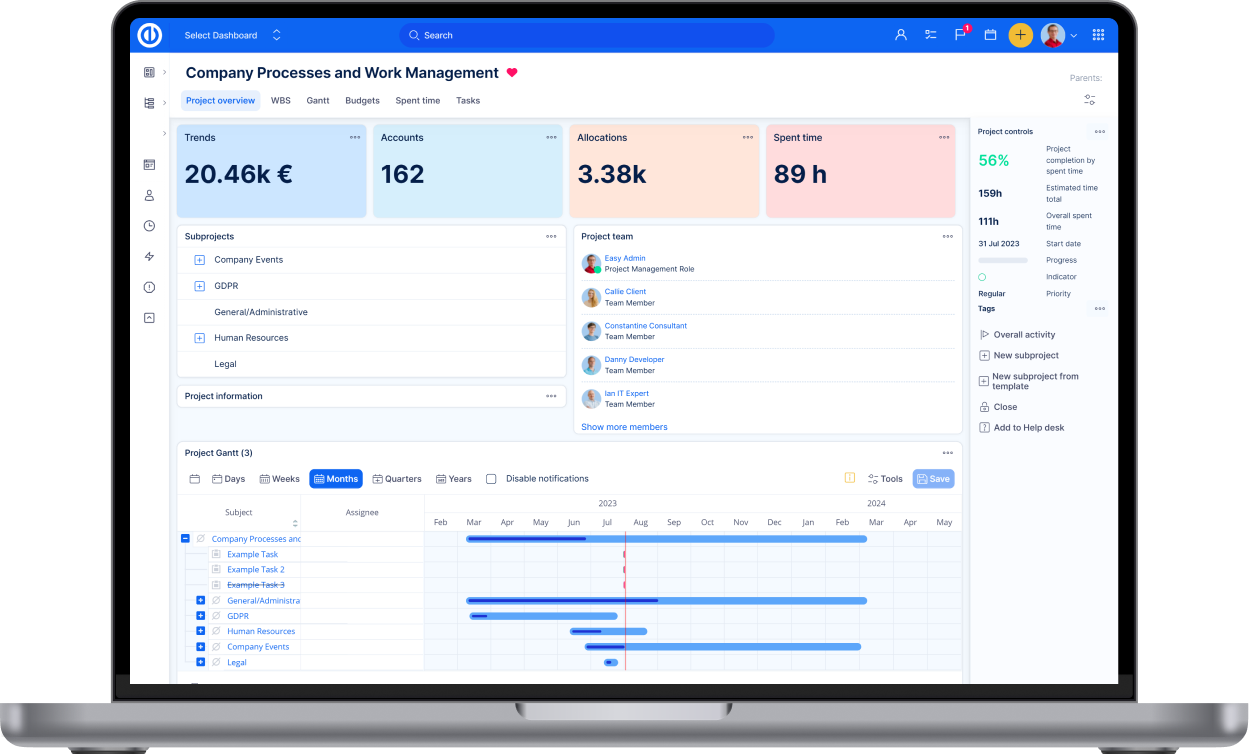Have You Become a Micromanager? Try Our Test!

Have you come across micromanagement? It's a management style characterized by precise control of the work of teams. There are some situations where it can come in handy, like in moments of crisis that seriously threaten a project's schedule, or when onboarding a new employee. But it should never be a long-term solution; in most cases, it is better to avoid it.
What does too much control lead to?
- Reduced team productivity
- Decrease of creativity
- Loss of motivation
- Higher employee turnover
Maybe you micromanage too
We often slip into micromanagement without knowing it. Whether it's because we feel responsible for successful project completion, we feel pressure from "above", or we are just impatient. Count how many of the following points you see yourself in and find out if you have micromanagement tendencies.
How many points describe you?
1/ You plan tasks for your team members in detail
Almost planning their coffee breaks! Employees have no say in when and how to work on each task. Everything is fixed in their calendar which looks almost like a school timetable.
2/ Sometimes you finish your team's task
Do you find yourself finishing tasks for your team? This is one of the ills of micromanagement, which can give employees the impression that they are not capable enough or that they don't have your trust.
3/ You pay more attention to details than to the project as a whole
You always want to have a perfect overview of who is doing what. You check every detail, every project edit. However, you often feel like you don't know what the overall status of the project is – which is why you constantly check everything.
4/ It takes ages before you are satisfied with the result
You constantly look for mistakes, so your projects go through countless revisions – but often these are minor details that just unnecessarily slow down the process. You often return work to employees for even the smallest adjustments, which can lead to frustration.
5/ You correct mistakes for others
Of course, mistakes need to be pointed out, but for employees to develop, it is important to leave the correction to themselves – whether it's a mistake in the code or just a minor grammatical error.
6/ You have too many meetings with your team
Too many meetings mean that your teams won't have enough time to do the work which increases their stress levels. Clearly, project meetings can't be completely avoided, but try to have as few as possible and only when they are needed.
7/ You disregard the experience of other employees
You don't ask for feedback very often and you feel that all decisions are yours to make – don't forget you're not alone! Overlooking the opinions of others can easily decrease your employees' motivation.
Agile Resource Management
Time for results
0 points: Exemplary manager
Congratulations, there isn't an ounce of micromanager in you! You trust your team completely and have all projects under your thumb without being too controlling. Your team can be satisfied.
1-2 points: Mini micromanager
Every now and then, you correct something for someone or schedule an unnecessary meeting – it happens to the best of us! The important thing is that you listen to your team, trust them and help them move forward.
3-4 points: Intermediate micromanager
You tend to control the project process more than is necessary. You spend too much time on trivia or detailed work planning. It might be a good idea to consider cutting back a bit and start trusting your employees more. Find out more in the tips below.
5-7 points: advanced micromanager
You want all projects to be executed perfectly from start to finish, and you need to be in control of every detail. Continue on this article to learn how to cut back on over-control and how to add more trust. Learn step by step to motivate your teams, lead them to individual responsibility, and soon both you and your employees will be happy.
The path to change
Learn how to cut back on micromanagement and how to put more trust in your team. Here are several tips for you.
More trust, less monitoring
Managing employees' work by the hour is a bit utopistic. Motivate your teams by giving them more freedom and a chance to plan their daily workload. With Agile Resource Management, you guide your employees towards individual accountability while having a perfect overview.
On top of it all, everyone in the company will see who is involved in which project so it helps to create openness throughout the company.
Dial back the criticism
Make sure you don't criticize too much, instead support and motivate the teams as a good leader should. Let your team come up with ideas on how to improve work processes.
Communicate, communicate, communicate
Talk to your team. Feedback is the best way for you to know what needs to be changed or improved. Listen to your employees and give their ideas a chance – what if they know something you don't? When you assign tasks, communicate clearly, let your team know you trust them, and then give them plenty of time to focus and work.
Goodbye, micromanagement
To part ways with micromanagement, it's good to know that open communication, trust, and team motivation can do wonders – especially when combined with a powerful tool that offers Agile Resource Management. We wish you the best of luck in your fight against micromanagement!

All-in-one software for a modern project manager? Easy.
Get all powerful tools for perfect project planning, management, and control in one software.

